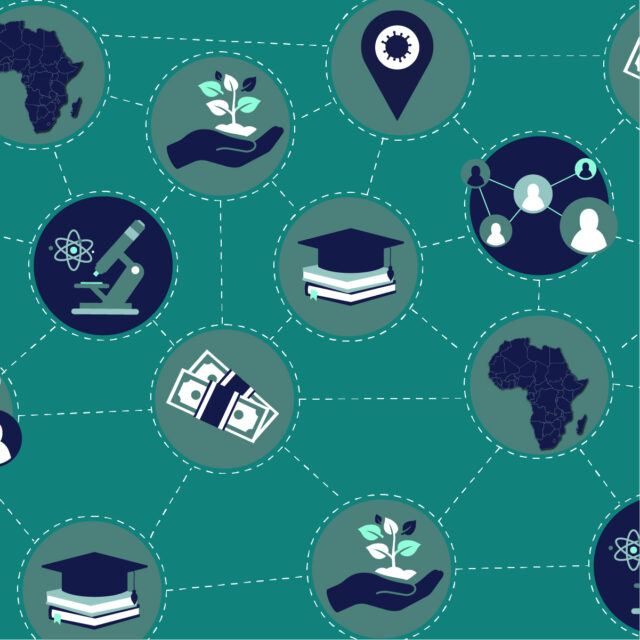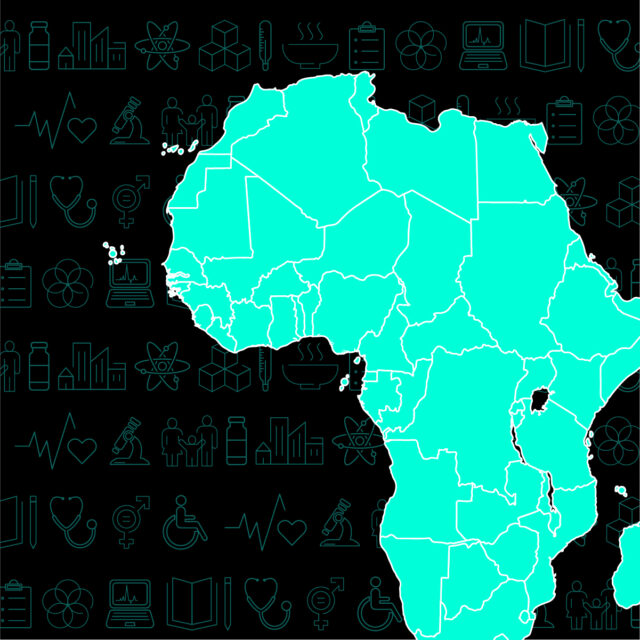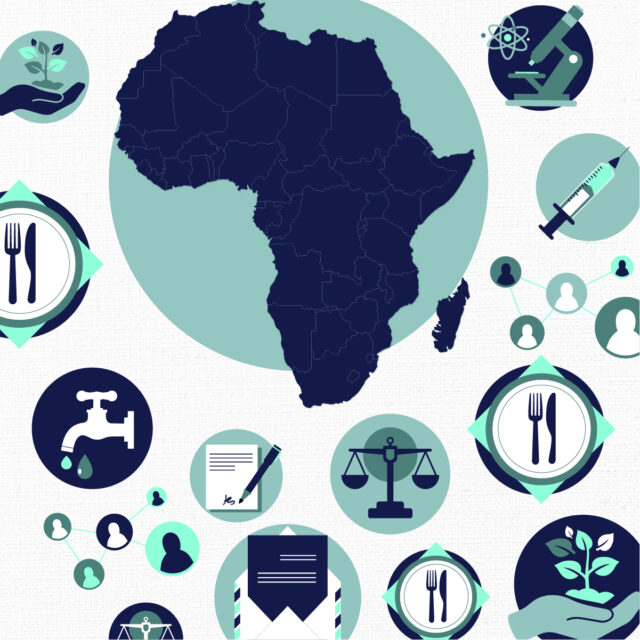Top news
A race against time: Countries that aren’t able to vaccinate at least 60% of their populations by mid-2022 may have GDP losses totalling $2.3 trillion between 2022 and 2025, per the Economist Intelligence Unit. South Africa and Morocco are the only African countries on track to reach this threshold by mid-2022, with the bulk of countries meeting that goal in 2023 and beyond. Consequently, sub-Saharan African nations will likely shoulder a 3% loss relative to the region’s GDP, the largest portion globally — an unwelcome superlative.
Another unwelcome superlative: South Africa’s unemployment rate surged to the highest in the world this week, at 34.4%. This recent uptick is partly due to last month’s social unrest and recent lockdown measures to control COVID-19. The lockdown measures have also contributed to a 60% increase in teen pregnancies in South Africa’s most populous province, risking “irreversible setbacks and lost progress for girls.” But for a spot of good news: The country has deployed 11 million vaccines as of this week, and vaccines are now available to everyone over 18 years of age. The proportion of fully vaccinated South Africans is nearly 9%.
Mutation woah!’s and woes: The Economist Intelligence Unit also reported that the target for herd immunity from COVID-19 now stands at around 90% — a goalpost that some global health leaders, including Dr. Anthony Fauci, have been quietly moving since last winter. The higher threshold is due to the highly transmissible nature of the Delta variant, which leaves patients with 300 times the viral load of those with the original variant. Reaching 90% immunity globally is looking unlikely due to vaccine inequity and hesitancy, which would make COVID-19 endemic and our battle with the virus the new normal. If that is the case, the disease-carrying burden will likely shift to children. So far, this group has been spared from the worst of the pandemic’s health consequences, but they face significant mental and emotional hurdles, especially in Africa.
Solidarity, please: Meanwhile, the WHO’s Africa division renewed calls for global cooperation and solidarity at its annual agenda-setting conference this week. The WHO Director-General Dr. Tedros Adhanom Ghebreyesus lamented “the fundamental weakness at the root of the pandemic,” aka a broadly hesitant approach to sharing vaccines, information, technology, and tools. This comes at a time when rich nations have deviated from WHO guidelines to delay booster shots, as a COVID-19 test factory intentionally destroyed 8.6 million tests, and as the Biden administration receives criticism for vastly under-spending on its commitment to ramp up vaccine manufacturing.
Truth, then dare: Médecins Sans Frontières estimates that it would cost $127 million to produce 100 million Pfizer-BioNTech doses in Africa within 10 months, and challenged the company to share its recipe with local manufacturers ASAP. The Pfizer-BioNTech vaccine — which could net $26 billion in sales revenue in 2021 — was approved by the US Food and Drug Administration this week, reinforcing its safety and efficacy. For a continent that imports 99% of its vaccines, harnessing mRNA production technology would be an important step towards vaccine independence, pandemic preparedness, and us retiring our #VaccinEquity soapbox.
Inequality double-whammy: The structural inequalities that make it possible for wealthy countries to hoard vaccines also make it easier for them to utilize other interventions to slow the disease compared with low-income countries. For example, in lower-income countries, lockdowns aimed at containing COVID-19 can lead to more childhood deaths than they avert, by a ratio approaching 2:1. This contributed to an additional 267,000 infant deaths in 2020, driven by reduced quality of nutrition and access to basic health care for children. While innovations in telehealth can help close such healthcare gaps in Africa, circumventing formal healthcare settings could exacerbate inequalities and compromise privacy.
To make matters worse: Other public health measures that slow COVID-19 transmission, such as social distancing and frequent handwashing, are out of reach for hundreds of millions of people throughout Africa, according to a new report. Strikingly, 700 million people on the continent do not have access to handwashing facilities, and 283 million sleep in a room with three or more people. These structural inequities are all the more reason for wealthy nations to stop hoarding vaccines and backing booster shots, and instead share their doses.
Socially transmissable: In Kenya, volunteers and health officials are fighting a misinformation war against false claims about COVID-19 treatment and prevention, ranging from the risks of vaccines to the efficacy of medications. Social media is central to this debate, leading Kenyan officials to announce that those deliberately spreading falsehoods online will be subject to arrest. Meanwhile, other Kenyans are using their platforms for good by socializing information about vaccination sites and availability, intel that the government has lagged in sharing. Hopefully this will speed the administration of 880,460 Moderna doses that Kenya recently received. It’s a welcome boost, given that just 1.5% of the country is vaccinated, and health and funeral systems are buckling under the pandemic’s strain.
Money on the mind: Vaccine misinformation is also a significant issue in Nigeria, but a study by the Africa CDC found that 76% of Nigerians will accept shots. Age, income, and education levels are all key determinants of willingness. The study also found that 69% of respondents were more likely to trust news on the radio, with just 36% preferring social media. Perhaps most compellingly, a related study found that respondents whose financial situation had worsened due to the pandemic were three times less likely to get vaccinated. The World Bank forecasted earlier this year that an additional 10.9 million Nigerians will enter poverty by 2022 — so if the connection between economic impacts and vaccine hesitancy holds true population-wide, there could be bigger inoculation hurdles on the horizon.
Rubber, meet road?: Togo has vaccinated more than 90% of its health workers, reaching a critical milestone just five months into its vaccination campaign. Officials credit this success to effective mythbusting and messaging, public mobilization campaigns, and the widespread installation of vaccination units in health centers and high-traffic areas. However, only 2% of the total population is fully vaccinated in Togo, and daily confirmed cases have increased by 2,000% since early June. So, metaphorically speaking, the distribution car may be built — but Togo needs access to millions more vaccines before the rubber can really hit the road.
The numbers
- 1.79 million: The highest daily number of vaccines administered in Africa, recorded on August 22.
- 25 million: The monthly vaccine production goal for Institut de Pasteur in Dakar, which hopes to start making vaccines later this year.
- 400: The number of oxygen cylinders used daily in Lagos state amid its third wave, a more than 5-fold increase from usage earlier in the pandemic.
More reads
- ONE teamed up with TikTok Africa to launch a #MythOrVax campaign, where users can test their knowledge about the pandemic. Watch the videos and learn more about the challenge.
- Aftershocks Data Journalism Fellow Jenifer Gilla wrote about the dearth of protections for domestic workers in Tanzania, including sick leave and access to masks and gloves.
- A recent study found that more than two-thirds of governments have provided limited or minimal accountability over their early fiscal policy responses to COVID-19. The lowest-performing countries are concentrated in Africa.
- Epidemiologists are closely tracking the COVID-19 variant family tree to project what the virus may do next. Doing so is far from simple, but looking at the past holds clues for the future.
- In a bizarre turn of events involving a kleptocracy scandal and Michael Jackson memorabilia, the government of Equatorial Guinea faces legal action to accept a $19.5 million payout to fight COVID-19 in the country.



